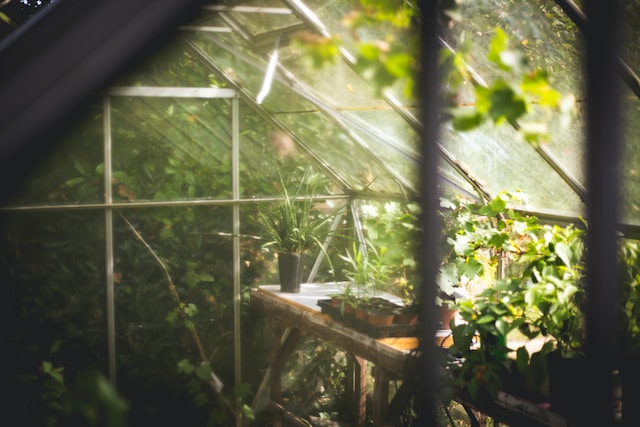Welcome to our blog, where we are ecstatic to talk about eco-friendly bug management options! Finding a safe and effective solution is critical whether you’re a green thumb gardener or simply want to keep troublesome insects away. We’ll evaluate two popular choices in this post: insect netting and chemical sprays. So let’s roll up our sleeves (and pant legs) and dive into the world of insect management – it’s time to locate your bug wingman!
Chemical Sprays vs. Insect Netting Cost Comparison
When it comes to pest control, money is frequently a deciding issue. Let’s look at the cost differences between chemical sprays and insect netting.
Chemical sprays may appear to be a low-cost solution at first glance. However, the repeated costs of acquiring and applying these items on a daily basis during the season begin to build up. Not to mention the potential health concerns linked with chemical exposure.learn more
In contrast, while installing insect netting may require an initial outlay, it proves to be a cost-effective solution in the long run. Insect netting, when properly erected, can provide bug protection for numerous seasons without incurring additional costs.
Furthermore, insect netting not only keeps pests out but also provides shade and temperature regulation for your plants. This dual functionality makes it even more cost effective when compared to chemical sprays that are just used for insect control.
In addition to being cost-effective in the long run, utilising insect netting is also environmentally good because it does not use toxic chemicals or contribute to pollution.
When evaluating bug control alternatives for your garden or crops, make sure to thoroughly assess the costs. While chemical sprays may appear to be less expensive at first, investing in high-quality insect netting is a more sustainable and financially wise option over time.

Alternatives to Chemical Sprays that are Safe for the Environment
Chemical sprays have long been the go-to choice for many homes when it comes to pest management. However, as people become more concerned about the effects of toxic chemicals on human health and the environment, they are looking for eco-friendly alternatives. Fortunately, there are a number of excellent methods available to help you keep bugs at bay without the use of dangerous chemicals.
Natural repellents made from plant-based components such as essential oils are a popular option. These oils include potent chemicals that repel insects while remaining non-toxic to humans and dogs. Citronella oil for mosquitoes, peppermint oil for ants, and eucalyptus oil for flies are some common examples.
Biological pest control is another environmentally friendly approach that involves introducing natural predators or parasites into your garden or greenhouse to devour or parasitize bugs. Ladybirds are an example of a beneficial insect that consumes aphids and other garden problems.
Physical barriers, such as insect netting, can also be quite efficient in keeping bugs out of your home or garden. Insect netting functions as a physical barrier, keeping insects at bay while allowing air and sunshine to pass through.
Good gardening practices can also assist lessen the need for chemical sprays. This entails pruning plants on a regular basis to increase ventilation and minimise pest overcrowding, as well as maintaining optimal soil health through composting and organic fertilisers.
By investigating these environmentally friendly alternatives to chemical sprays, you not only protect yourself and your family from potentially toxic compounds, but you also contribute to a better future by lowering your environmental impact.
Using Insect Netting for a Safer and Greener Solution
There are several solutions for pest control, but not all of them are environmentally favourable. Chemical sprays may appear to be a quick fix, but they have their own set of downsides and significant environmental impact. In contrast, insect netting is a safer and greener alternative that effectively keeps bugs at bay without causing any negative side effects.
It is relatively simple to install and maintain bug netting. You may establish a protective barrier around your garden or outdoor living space with only a few simple steps. Regular maintenance entails inspecting the nets for tears or holes and mending them as needed. This small effort ensures that your plants are free of pests during the growth season.

Cost is a major consideration when deciding between chemical sprays and insect netting. While chemical sprays may appear to be less expensive at first glance due to their reduced upfront cost, they frequently require reapplication to retain effectiveness. These fees might quickly mount up over time. In contrast, once placed, insect netting requires only minor maintenance, such as repairs or replacements as needed.
In addition to being less expensive, insect netting has various environmental advantages over chemical sprays. By using this natural pest management method instead of chemicals that might kill beneficial insects like bees and butterflies, you are helping to preserve biodiversity in your local ecosystem.
Furthermore, employing insect netting lowers pesticide runoff into water sources like rivers and lakes, which poses serious dangers to aquatic life and overall environmental health.
Switching to insect netting not only delivers excellent bug management, but it also fosters a safer environment for both humans and wildlife. We actively contribute to a greener future by minimising the need for dangerous chemicals in our surroundings through sensible choices such as insect netting installation.
So, why delay? Install high-quality bug nets adapted particularly to your needs today to embrace this ecological option. Say goodbye to dangerous chemical sprays and hello to a safer, greener environment.




